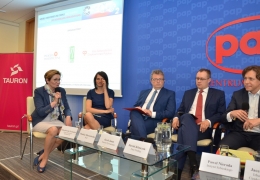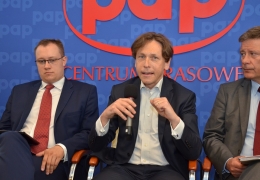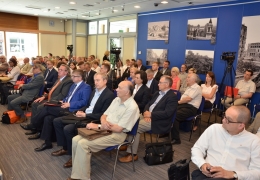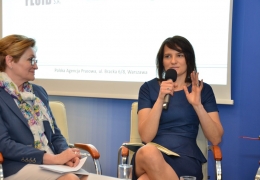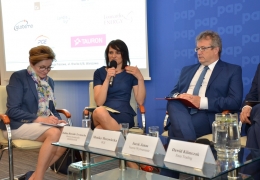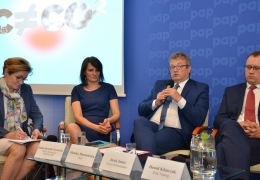Debate: „Coal and low-emission heat as elements of the Polish way to low-emission economy”
Debate organised under auspieces of the Ministry of Energy
Date: 03.06.2016r. 10:30-13:15
Place: Warsaw (Polish Press Agency. ul. Bracka 6/8)
The policy of tightening the standards of harmful gas emissions to the atmosphere is a consequence of global economic and technological processes and thus the trend is irreversible. Poland takes part in the process and follows the trend, but also looks for its own ways and solutions. Therefore, we are now facing the questions: how to approach the transformation to a low-emission economy and what strategy to adopt in this field? Coal is the country’s main asset which guarantees energy security of the country. Poland has the lowest level of dependence on energy imports in the European Union, as the level is two times lower than the EU average.
The discussion on the climate policy objectives, which has been on-going for a long time already, has gained a new dimension as a result of the conclusions of the Climate Conference COP21 held at the end of 2015. Measures to curb the increase in global air temperature by 2 degrees Celsius are aimed against greenhouse gas emissions rather than against coal as a source of energy. One of the COP21 conference findings of importance for Poland relates to balancing CO2 emissions through increased afforestation. The relevant provision was introduced to the Climate Conference agreement thanks to the great determination of the Polish delegation. Poland and other European Union countries are bound, however, not only by the new climate agreement concluded at the COP21 summit in Paris, but also by the EU climate-related regulations. Today, the European Union is discussing draft climate policy regulations for the period 2020-2030. It is of importance to include the COP21 conclusions into the EU regulations on the climate and energy policy beyond 2020.
According to media reports, some global companies are gradually preparing to give up fossil fuels and to shift the focus of their development policies to alternative sources of energy; this is accompanied by the promotion of decarbonisation policy commonly understood as full departure from coal.
Is it the only correct option? In Japan, due to the problems with nuclear power, increasing support is provided to modern clean technologies for combusting traditional resources. Those technologies are characterized by efficiency levels that meet the strictest environmental standards.
Therefore, our chance is to use traditional energy sources, in particular coal, in the wisest possible manner and with the use of state-of-the art technologies. We should strive to develop solutions which, instead of prohibiting the use of this valuable fuel, will encourage entities to invest in its most efficient and clean use. This is not just an empty idea. A chance for the heating sector is not only an increased use of well-known and widely used technologies (CHP) and energy sources (biomass and waste), but also the implementation of more advanced solutions (tri-generation) and the development of new technologies (e.g. energy storage). The common element of all those measures should be their integration with the local and national energy systems and the focus on conscious management of available energy resources.
The future economy of Poland should be a low-emission economy rather than a low-carbon economy. We have a chance to demonstrate that we can achieve the common goals without turning our all economy upside down. The success can be achieved through dialogue and joint activities of the public administration sector, universities and industry.
During the debate, the following issues were discussed:
- Climate and environmental protection vs. the role of coal in the 21st century
- Development of cogeneration (coal, gas, biomass)
- Proactive smart use of coal in the power sector and other industries
- New coal combustion technologies – experience of other countries
Organisers:



Patronage:



Partners of the debate:



Strategic Partners:

![]()



![]()




Media Patrons:

![]()

![]()
![]()
![]()
![]()
![]()
![]()

